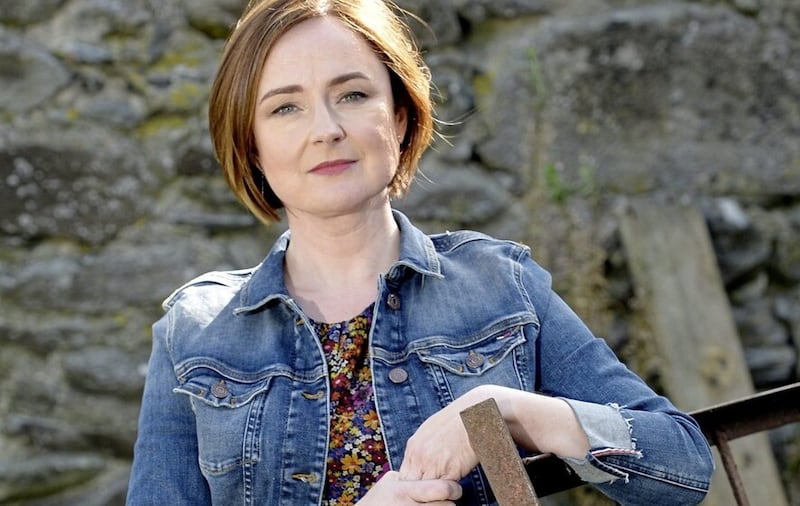NEARLY half of children and adults waiting to access mental health services in Northern Ireland wait longer than nine weeks, new figures show.
The SDLP MLA Mark H Durkan asked the Health Minister Robin Swann for a breakdown of figures in an Assembly written question and called the current situation “deeply disappointing”.
As of January 31 this year, a total of 6,347 adults were waiting to access mental health services – including 2,719 for over nine weeks.
This was highest with the Belfast Health trust, with 1,934 waiting and 1,068 longer than nine weeks.
For Child and Adolescent Mental Health Services (CAMHS), 2,069 were waiting to access services with 1,132 waiting longer than nine weeks.
The largest number was for the Northern trust at 674, with 439 waiting longer than nine weeks.
- Platform: Proper investment needed to help improve mental health services for the better across Northern IrelandOpens in new window
- Should you take a break from social media to look after your mental health?Opens in new window
- Irish language activist Linda Ervine on how religion saved her from mental health strugglesOpens in new window
Mr Durkan told The Irish News the current situation was “stark, but sadly not all that surprising”.
“For some years the SDLP has been highlighting the long waits faced by people in need of mental health support and the underinvestment in these services that has left many having to look elsewhere to find the care they need,” he said.
“For a person in crisis an immediate intervention is often key, if someone is dealing with an acute mental health issue then these delays can often make the problems worse, navigating our health system is a challenge at the best of times and for someone in need of help it can be particularly challenging and even discourage them from seeking assistance.”

He said greater progress was needed on the department’s Mental Health Action Plan after delays caused by the pandemic.
“We cannot continue in the current situation where charities and community organisations are expected to step in as our health system crumbles around us,” he said.
“The SDLP Opposition will continue to push the minister for proper investment in mental health services so that everyone can access the support they need in a timely manner. Despite progress, it’s deeply disappointing that we are still not treating this issue with the seriousness it deserves.”
Northern Ireland’s Mental Health Champion, Professor Siobhan O’Neill, called the waiting times “shocking”.
“Nine weeks is a long time to wait for treatment and we know that mental health can deteriorate further during this time,” she told the Irish News.
“Mental illness is treatable, and people deserve effective treatments in a timely manner. This would alleviate suffering and allow people to flourish in their roles at work and in their relationships with their families and community.”

She said the reasons behind the increases were clear; the cost-of-living crisis, inequalities and poverty as well as the trauma and adversities experienced by much of the population.
“We are missing opportunities for early intervention and prevention of mental illness, and creating further suffering, through the failure to provide a supportive and nurturing environment in childhood and inadequately supporting vulnerable families,” she said.
Calling for the Mental Health Strategy to be fully funded, she said it would “transform our mental health services” and create a Regional Mental Health Service.
She said a major benefit would be early intervention and prevention, reducing the number of people needing treatment.
With only “a fraction of the necessary funding” made available, Prof O’Neill said the funding plan stated £43m was needed for 2024/25 and that she had asked the Finance Minister Caoimhe Archibald for a commitment to ringfence this in her budget.
“Investing in the Strategy will pay dividends and reduce the economic burden of poor mental health, which in Northern Ireland is £3.4 bn every year.”
With plans to reinforce her message with an upcoming meeting with the Health Minister, she said a detailed delivery plan was needed to realise the ambition of the 10-year plan.
Priorities for this year were listed as the delivery of promised crisis services, which would provide an alternative to Emergency Departments for people in suicidal crisis along with tailored follow-up interventions.
A “mental health workforce crisis” causing multiple vacancies across health trusts was another concern, partly explaining long-waiting times.
Another call for this year was the appointment of a Chief Psychological Officer to oversee the development a Psychological Therapies workforce and increase all types of non-pharmacological therapeutic interventions.
A Department of Health spokesperson acknowledged that demands had significantly increased for both adult and CAMHS services in recent years, with the Covid-19 pandemic and resource constraints all contributing.
They said this included young people presenting with higher levels of acuity and complexity of need, particularly in relation to eating disorders.
“As a result, young people have required higher and more intensive levels of support, including inpatient care,” the spokesperson said.
Longer term improvement in CAMHS for Northern Ireland is expected to be achieved through the implementation of the Mental Health Strategy 2021-31.
The department said “good progress has been made” on delivery, including extra funding to assist with increasing capacity and enhancing current provision as well as the roll out of the Acute CAMHS Managed Care Network.
Work has also started on developing longer term investment plans, recognising a commitment in the strategy to increase CAMHS funding to 10% of adult mental health funding.
For adult services, they said all health trusts were experiencing “significant pressures” because of increased demands on services including more new referrals and increased complexity and acuity of people presenting.
Significant workforce pressures were also reported because of increased vacancy levels.
The spokesperson added: “The Mental Health Strategy 2021-31 commits to developing systems that work together to reduce waiting lists and that support people at their time of crisis, including a reduction of the use of Emergency Departments as a crisis response.”









